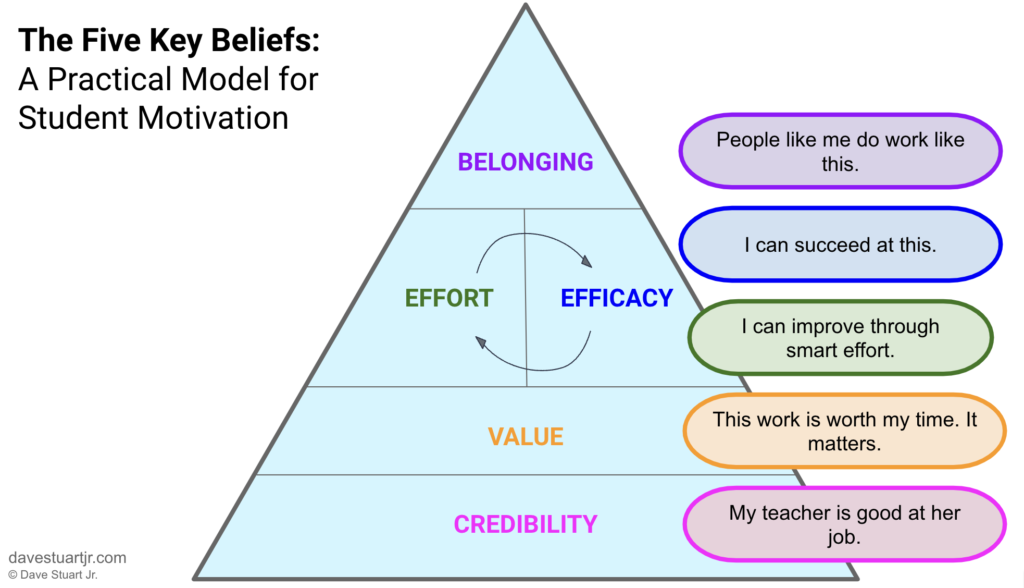I was talking with one of our colleagues the other day, Mr. Adam Craig, who teaches mathematics in Amarillo, TX. He brought up a phenomenon that many of us can likely relate to: hearing a student bemoan the fact that one of their teachers doesn't like them.
I'm talking about things like this: “Oh, Mr. Stuart? Yeah, he doesn't like me. I talk too much in his class.”

The above is a quote that my daughter Haddie heard at youth group one night last year. One of my current students at the time was in the group; she said this to Haddie.
And look: I was so grateful! Because usually students just hold these kinds of thoughts inside or they share them with their friends. The message doesn't always get back to the allegedly disliking teacher.
I could only chuckle when I heard this from Haddie. Like Mr. Craig, I thought to myself, “Wow — for 95% of my students, on my bad days I'm at worse neutral about them.”
(For that other 5%, there's this post I wrote some years ago: The First Key to Connecting Well with All Students is to Like Them; This Often Takes Work.)
Which brings us to the question of this article: Should you explicitly tell students that you like them?
And the answer, of course, is YES. You should. Here's why.
Student motivation comes down to signaling
The trick with the Five Key Beliefs approach to student motivation (framework pictured below) is that you can't force students to believe things. All you can do is get really intentional about the signals you're transmitting to them. But the trouble with signals is that they are invisible.

So, since they're invisible, you don't always know what Five Key Beliefs signals you're sending. Even if you're the most intentional teacher in the world about the signals you're sending to your students, you still don't know if some of your signals might be getting received as “I DON'T LIKE YOU, PUNY STUDENT!!!”
And obviously, if we're signaling that — like I was to the student that my daughter heard from at her youth group — is it likely that the student will find us optimally Credible? Like they'll feel an optimal sense of Belonging in our classrooms? An optimal safety within which to apply Effort and work toward success (Efficacy)?
And that's why it's so helpful to say sometimes, in a way that makes sense coming from you, things like this:
- Hey, just so you know — I like you. I think you're great.
- I'm glad you're in my class.
- Wow, you're really something, you know that?
- It's a good feeling to be around you.
- I'm glad I get to be your teacher.
These aren't the kinds of things we often say to people, are they?
But, you know what? I think we should.
I think you should, today, to someone you like to be around but have never told that.
And as you're doing it, picture yourself practicing a skill, like an athlete practices a sport.
You're gaining muscle.
You're building strength.
And do you know something, colleague? I really like that about you.
Best,
DSJR
Leave a Reply